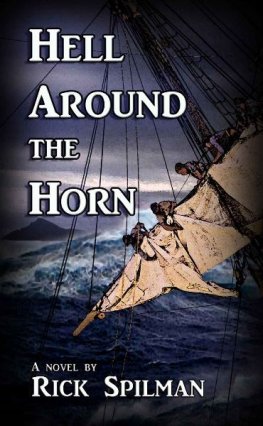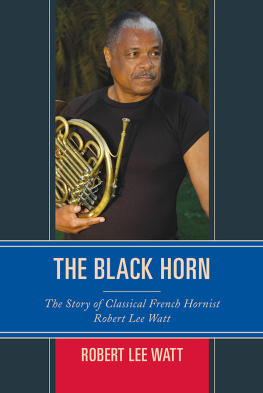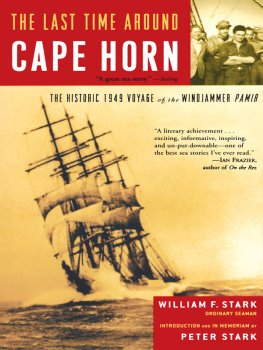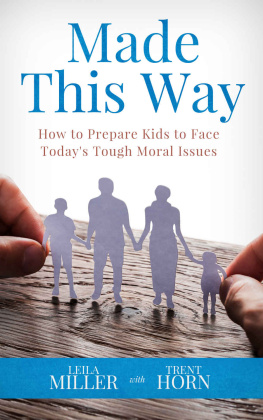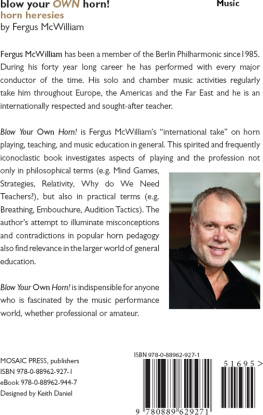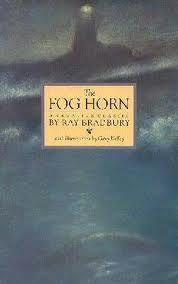Sarban - The Sound of His Horn
Here you can read online Sarban - The Sound of His Horn full text of the book (entire story) in english for free. Download pdf and epub, get meaning, cover and reviews about this ebook. genre: Science fiction. Description of the work, (preface) as well as reviews are available. Best literature library LitArk.com created for fans of good reading and offers a wide selection of genres:
Romance novel
Science fiction
Adventure
Detective
Science
History
Home and family
Prose
Art
Politics
Computer
Non-fiction
Religion
Business
Children
Humor
Choose a favorite category and find really read worthwhile books. Enjoy immersion in the world of imagination, feel the emotions of the characters or learn something new for yourself, make an fascinating discovery.

- Book:The Sound of His Horn
- Author:
- Genre:
- Rating:5 / 5
- Favourites:Add to favourites
- Your mark:
- 100
- 1
- 2
- 3
- 4
- 5
The Sound of His Horn: summary, description and annotation
We offer to read an annotation, description, summary or preface (depends on what the author of the book "The Sound of His Horn" wrote himself). If you haven't found the necessary information about the book — write in the comments, we will try to find it.
The Sound of His Horn — read online for free the complete book (whole text) full work
Below is the text of the book, divided by pages. System saving the place of the last page read, allows you to conveniently read the book "The Sound of His Horn" online for free, without having to search again every time where you left off. Put a bookmark, and you can go to the page where you finished reading at any time.
Font size:
Interval:
Bookmark:
Sarban. The Sound of His Horn
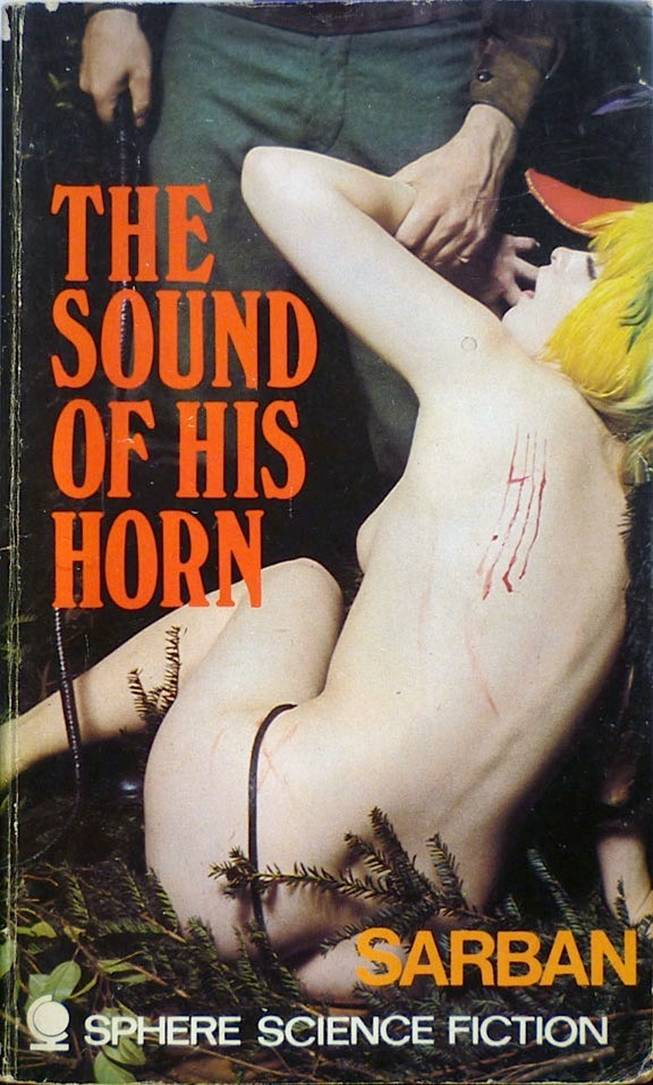
Foreword. by Kingsley Amis
We can be pretty certain that our literary tastes are arrived at not so much by conscious choice as in response to the less-than-conscious demands of our temperament. Thus the reader of westerns isn't in the first place concerned with a particular stretch of American history, nor does he simply want a fast narrative with plenty of action. What he likes, I imagine, is hearing about a special kind of heroic society and a special, simplified code of morality and honor. The idea of gun law satisfies his nature in a way that tough ethics or private-eye ethics, for instance, can't. The same sort of process, with its different sets of results, is at work in the mind of the science-fiction addict and the fantasy addict.
The distinction between science fiction and fantasy has been thrashed out over and over again without anything very positive emerging. It will not quite do to say that science fiction tries to make its marvels plausible while fantasy doesn't bother with any of that To take only one example: the ghost stories of M. R. James work hard and successfully to convince the reader that there are circumstances in which a ghost can be expected to show up, to offer a chain of logic that will explain an apparition just as satisfactorily as time travel, etc, is explained by the logic of the science-fiction writer. And similar objections can be made against all other attempts to distinguish between the two modesall that I have seen, at any rate. On the other hand, most of us usually know which of the two we are reading in any given case. The definitions may not fit properly but there are always plenty of clues.
Science fiction is likely to be interested in the future, whether near or remote. The bias of fantasy is correspondingly backward-looking, to the mythologies of demons and werewolves and mermaids. When it does portray the future, it does so typically in terms borrowed from the past, dressing everybody up in ceremonial robes and locating them in some kind of feudal or medieval world. Again, the horrors of science fiction, when not interplanetary, are always urban; its paradises, as in the work of Clifford D. Simak and others, are rural. But it is right there in the country that horrible things happen to characters in fantasy stories, to the terrified old couple cut off from humanity in Shirley Jackson's The Summer People, to the village at the mercy of an omnipotent three-year-old sadist in Jerome Bixby's It's a Good Life.
To take it a stage further back, one could argue that fantasy appeals to deeper and darker instincts than does science fiction. The fears that find expression in it are not rational fears of an overgrown technology or a gradually encroaching totalitarianism, but ancient irrational fears of that world which science has blotted out of conscious thought, the world of unseen forces beyond the extrication of science, to be seen most clearly in terms of the past, obviously, or in remote areas where the rule of science does not run. And so science fiction, the active, progressive agent, is hopeful about man's ability to improve himself via reason; fantasy, reactionary and pessimistic views man as the hopelessly corrupt plaything of blind, random influences. It is in this sort of way that we can explain the air of arbitrariness and cynicism, the slices of cruelty, disgust and despair, that are characteristic of so much fantasy writing, and here lies its appeal to our temperament. I hope I haven't sounded puritanical about this, by the way; I myself prefer science fiction to fantasy on the whole, and of course I think this is right; but the view of life I have ascribed to fantasy is one which has its attraction for most of us at certain times. Occasionally, too, a piece of fantasy comes along written with a skill and energy that make us revise our preconceptions.
The Sound of His Horn is such a piece. It certainly is fantasy in all sorts of ways, starting with the obvious point that the parallel universe in which the main story takes place is not to be approached by any kind of scientific technique, nor is its existence to be explained along any possible scientific lines. Alan Querdilion, retelling his experiences, feels he ought to be able to explain them away as a madman's dream, for this would be the best proof of sanitynot by my own sanity alone, but the sanity of all this order that we believe in, the proper sequence of time, the laws of space and matter, the truth of all our physics; because you see, if I wasn't mad there must be a madness in the scheme of things too wide and wild for any man's courage to face.
To question the validity of all this order that we believe in is the typical starting-point of fantasy, and a madness in the scheme of things is its typical subject matter. When Querdilion awakes to find himself in a future world dominated by the Nazis after their victory in World War II (now renamed the War of German Rights), he is acting out a favorite maneuver of fantasy and indeed a nightmare that reaches a long way back into the past: the dreadful awakening into an environment that is human but changed. The character's response, and the reader's invited response, are shock and horror, expressed most powerfully in Kafka's The Metamorphosis, which inverts the usual procedure by changing the character (into a huge roach) and leaving the environment unchanged.
Sarban's achievement is not on the scale, but the shock and horror are genuine enough. They are given an added edge by the relative plausibility of the society in which Querdilion finds himself marooned. If the Nazis had in fact won their war, we could have expected to seethose of us who were still arounda systematic development of the master-race concept into a kind of feudal structure, with a small oligarchy of immensely powerful and capricious overlords, a middle stratum of fiendishly conscientious Party administrators, and a huge slave-proletariat absolutely subject to the whim of their masters, even to lengths of providing them, as here, with human game for the chase. No less plausible is the rural environment, which connects up with those distorted Nazi dreams of an older Germany inhabited by hard-riding, hard-drinking barons (Hermann Goering, cleverly invoked in the novel, is the example here) and bands of clean-limbed young Nordic foresters (compare the countrified elements in the activities and dress of Nazi youth organizations).
I said earlier that a rural setting was a settled ingredient of fantasy, but inspection reveals that Sarban uses it, and much else, in a way more characteristic of science fiction. The long prelude, again, with its cheerful fireside atmosphere, is aimed at setting up a reassuring basis of familiarity while preparing for a violently contrasting plunge into the unfamiliar. The average writer of fantasy does not go about things in this way. Even if he is interested in plausibility, he seldom goes beyond inducing us to suspend our disbelief for the duration of the story; Sarban remains plausible on reflection as well. Further, to present a whole society and way of life, not merely a situation, in relatively convincing terms is even less typical of fantasy. And just as The Sound of His Horn invites comparison with science fiction in its concern to present a coherent picture that borders on our own experience (plus a few bio-technological details about the breeding of slaves), so it stands as a challenge to science fiction in its originality.
The nightmare futures envisioned by writers like Frederik Pohl or Ray Bradbury are often brilliantly detailed and imaginative, but as noted they are always urban, metropolitan, technological, consumptional, managerial. Sarban's rural hell is just as clearly visualized, furnishing a critique of that huge tribe of authors who can only see future systems of oppression in terms of brainwashing and too much television, and acting as a timely reminder that a nonurban hell is not only imaginable, but possible. There is no reason to suppose that the currently accelerating dislike for megapolitan life will not eventually explode into action, and if that is in the cards we have Sarban to show us the falsity of the sentimental consensusto be found outside science fiction as well as within itthat it is only the city and the machine and the ad which kill, that the country rehumanizes. One could add that it is a relief to meet a story of this general kindthe nasty Utopiathat doesn't adopt the hackneyed science-fiction solution of showing a band of the oppressed killing the local overlord and freeing his prisoners before marching off into the sunset to reconquer the world for democracy. I like that prospect all right, but it comes up rather more often than it needand much more readily than it in fact would if any of these imagined hells, urban or rural, came halfway to reality. An occasional dose of pessimism, such as Sarban provides, is good for you.
Font size:
Interval:
Bookmark:
Similar books «The Sound of His Horn»
Look at similar books to The Sound of His Horn. We have selected literature similar in name and meaning in the hope of providing readers with more options to find new, interesting, not yet read works.
Discussion, reviews of the book The Sound of His Horn and just readers' own opinions. Leave your comments, write what you think about the work, its meaning or the main characters. Specify what exactly you liked and what you didn't like, and why you think so.

